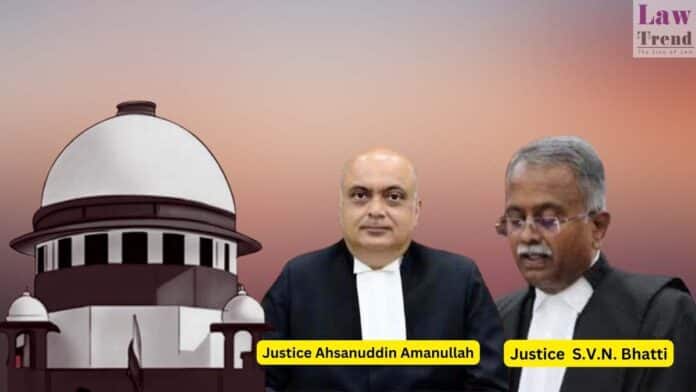The Supreme Court, in a significant ruling on property law, has held that a suit for declaration of title filed after decades of inaction is barred by limitation, applying the doctrine of constructive notice. A bench of Justices Ahsanuddin Amanullah and S.V.N. Bhatti set aside the judgments of the Karnataka High Court and a trial
To Read More Please Subscribe to VIP Membership for Unlimited Access to All the Articles, Download Available Copies of Judgments/Order, Acess to Central/State Bare Acts, Advertisement Free Content, Access to More than 4000 Legal Drafts( Readymade Editable Formats of Suits, Petitions, Writs, Legal Notices, Divorce Petitions, 138 Notices, Bail Applications etc.) in Hindi and English.




